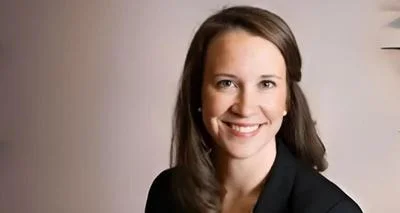Matt Batzel, National Executive Director, American Majority | Photo courtesy of American Majority
Matt Batzel, National Executive Director, American Majority | Photo courtesy of American Majority
Gov. Tony Evers (D) signed Wisconsin’s two-year budget into law July 5, which includes his veto of a tax cut that will cost the average Wisconsinite $537, according to analysis by the non-partisan Legislative Fiscal Bureau. Evers had promised a 10 percent tax cut when he ran for reelection for governor.
"No one wants to write an extra check to the Department of Revenue at the end of the year, yet that's what Gov Evers' veto is causing. Instead of a tax cut, the average extra payment will be $537 due to Evers' veto," said Matt Batzel, National Executive Director of American Majority. "Evers' veto of the tax cuts is not only a broken promise to help the middle class, but seems targeted to hurt the working poor. Single moms making over $27,630 a year are suffering in this inflationary economy and Evers just took a tax cut away from them."
Data from an analysis by the non-partisan Legislative Fiscal Bureau shows that Gov. Evers' July 5 veto of a tax cut included in Wisconsin's two year budget will cost the average Wisconsinite $537, as reported by Milwaukee Journal Sentinel.
According to a report from the MacIver Institute, Gov. Evers pledged a 10% middle-class tax cut when he ran for reelection. As recently as May 2 of last year, Gov. Evers tweeted about his plan which he said would "cut taxes by 10% for single filers making 100k or less and married-joint filers making $150k or less."
Evers’ reversal on tax relief will be felt across virtually all Wisconsin households, including some of the poorest. The Badger Institute reports that while the Wisconsin Legislature had approved cutting the tax rates for all Wisconsinites, Evers vetoed most of the cuts. No single filers earning more then $27,630 nor joint-filers earning more then $36,840 will see tax relief after Evers series of vetos.
Inflation’s impact on lower income households is worse than the overall population, according to academic studies and the Federal Reserve. In a 2022 speech at the Institute Research Conference, Fed Governor Lael Brainerd said: “Lower-income families expend a greater share of their income on necessities; have smaller financial cushions; and may have less ability to switch to lower-priced alternatives. Arthur Burns noted in the late 1960s that "there can be little doubt that poor people…are the chief sufferers of inflation."
A recent report from the Dallas Fed said that inflation hurts the poor more because “they spend more of their income on necessities such as food, gas and rent—categories with greater-than-average inflation rates—leaving few ways to reduce spending.”
Despite the disproportionately negative impact of recent inflation, and the need for poorer Wisconsinites to receive tax relief, Gov. Evers has said he will not revisit the tax cut issue nor cut any further income taxes, even cuts targeted only at the middle class, reported Milwaukee Journal Sentinel.
Assembly Speaker Robin Vos said he would reintroduce tax cuts later this year. "We are not going to lay down," Vos told WISN-AM radio host Jay Weber, according to Milwaukee Journal Sentinel.






 Alerts Sign-up
Alerts Sign-up